
The following funding opportunities have been announced. Please follow the links for more information.
Surrey Archaeological Society, Archaeology and History Grants
Surrey Archaeological Society welcomes applications which will assist archaeological and historical research within the county. Applicants will be expected to demonstrate in what ways the proposed research will further understanding of the County’s archaeology and history. It is anticipated that some form of Project Design will be submitted (as long or short as the occasion demands, but essentially to say what the project is about, why it should be done, how it will be done, by whom, how much it will cost, and when and how it will be archived, written up and the results disseminated.)
Deadline- none
Amount of grant- £2000
Society for the study of Addiction_ Bursary Scheme
The aim of the Bursary scheme is to facilitate training in the addictions field for individuals experiencing difficulty in funding a course of study.
The Society’s Trustees make SSA funds available to individuals who:
- have been offered a place on a UK University-validated, UK-based programme in specialist addiction studies;
- have a demonstrable commitment to working in the addictions field;
- have not participated in a substantial event of this nature in the one year prior to that for which they have applied (unless the latter is a follow-up course for which they cannot obtain funding).
Amount of bursary: £1000 per annum standard award (or less if the fees are below this amount) for an individual course of study in any one financial year; or a maximum of £1,500 when taking courses consisting of more than a single module.
Deadline- none
The Wellcome Trust
This scheme is for small-scale humanities and social science research projects, scoping exercises or meetings in any area of human or animal health, including projects relating to research resources.
The normal maximum that can be applied for is £5,000. If funding is intended for international meetings, or to attract international speakers, up to £10,000 may be requested.
Amount: £5000 and if funding is intended for international meetings: £10000
Deadline: none
Royal Society Wolfson Research Merit Award
The scheme provides universities with additional support to enable them to recruit or retain respected scientists of outstanding achievement and potential to the UK. It provides a salary enhancement which is paid by the university in addition to the basic salary.
The scheme covers all areas of the life and physical sciences, including engineering, but excluding clinical medicine.
The scheme is jointly funded by the Wolfson Foundation and the Royal Society.
Applicants can be of any nationality and must hold a permanent post at a university in the UK or have received a firm offer to take effect from the start of the award as well as having their basic salary wholly funded by the university.
The eligibility of the application must be discussed between the Vice Chancellor of the university or their elected representative (e.g. Head of Department) and the Royal Society Grants Office before an application can be made.
Interested applicants must let RKEO know at first instance and we will contact the Funder about this scheme, after which a security code can be obtained for the nominated researcher to begin the application on e-GAP.
Before applying, please ensure that you meet all the eligibility requirements, which are explained in the scheme notes.
The scheme provides up to 5 years’ funding after which the award holder continues with the permanent post at the host university.
The focus of the award is a salary enhancement, usually in the range of £10,000 to £30,000 per annum.
It is the responsibility of the host university to pay the basic salary. It is also the responsibility of the host university to meet the employer’s contributions towards pensions and National Insurance for both the basic salary and salary enhancement.
Deadline for applications: 4th July 2016
Innovate UK- Funding competition: manufacturing and materials
Innovate UK is to invest up to £15 million in innovation projects in manufacturing and/or materials. These projects will focus on identified technical or commercial challenges. It will fund projects that aim to lead to increased UK SME productivity, competitiveness and growth.
Projects need to be led by a business and must involve at least one SME. They can be carried out by an SME working alone or in collaboration with other organisations. Projects with costs of £100,000 or more must involve working with other partners
The funder is looking for projects which focus on any of the technical feasibility, industrial research or experimental development research categories.
Projects should last between 6 months and 3 years. They should range from total costs of £50,000 to £2 million.
Deadline for registrations by noon: 6th July2016
Deadline for applications by noon: 13th July 2016
Innovate UK_ Connected digital additive manufacturing
Innovate UK is investing up to £4.5 million in collaborative industrial research projects that stimulate innovation in additive manufacturing, also known as 3D printing.
The aim of this competition is to help companies overcome barriers to business growth in additive manufacturing. It will also encourage them to explore and develop their wider digital manufacturing capability. This will help them secure a more productive and competitive business proposition in the future.
Projects must range in size from total costs of £500,000 to £1.5 million.
A business must lead this project. You must collaborate with at least one other business. You can invite research organisations to work with you on this project.
Deadline for registrations before noon: 20 July 2016.
Deadline for applications before noon: 27 July 2016.
BBSRC_Foundation Awards for Global Agriculture and Food Systems
The Global Challenges Research Fund (GCRF) is a new 5-year £1.5Bn resource funding stream, announced as part of the 2015 spending review, to ensure that UK research takes a leading role in addressing the problems faced by developing countries. The GCRF will deploy the UK’s world-class research capability to address the challenges faced by the developing world. The funding is protected science spend and the Research Councils are primary delivery partners. The GCRF is also part of the UK Government’s pledge to allocate 0.7% of Gross National Income to Official Development Assistance, promoting the welfare and economic development of developing countries. With the GCRF focus on global challenges, research investments are expected to span disciplines including the biological sciences, environmental sciences, medicine, engineering and physical sciences, the social sciences and the arts and humanities.
BBSRC, MRC, ESRC, AHRC and NERC are working in a co-funding partnership to support multidisciplinary Foundation Awards for Global Agriculture and Food Systems. Foundation awards aim to be flexible, moderately sized, short to medium-term investments targeted towards novel research objectives – that address the challenges faced by the developing world. Up to £16.3M is available based on the quality of proposals received. BBSRC is leading and manging the call on behalf of the other funders with an anticipated BBSRC budget in the region of £12M and funding support from MRC, ESRC, AHRC and NERC.
This BBSRC-led call complements the MRC-led Foundation Awards strategies in Global Health Science – Beyond Infections, and Global Infections – Vision and Strategy; these other calls are also being co-funded substantially by BBSRC, and also by ESRC, AHRC and NERC.
Applications must be submitted by UK Research Organisations that are eligible to receive funding from BBSRC. Information about eligible organisations is available on the RCUK website (see external links). Non-eligible partners (including those from overseas organisations) may be included, as described in section two of our grants guide, under ‘Collaborative Research Grants’.
There is a two stage application and assessment process: outline and full proposals.
BBSRC is leading on the administration of this call, on behalf of all the funders. Applicants should refer to the BBSRC grants guide and Je-S help text for further information.
Deadline for outline applications via Je-S by 4pm: 22 June 2016
Technical and scientific support in relation to the implementation of the 92/43/EEC Habitats and 2009/147/EC Birds Directives
The Directorate-General for Education and Culture has opened a call for tenders, to provide technical and scientific input to the Commission in 3 areas which are of key importance for the implementation of EU nature legislation (Birds Directive 2009/147/EC and Habitats Directive 92/43/EEC): analysis of legal cases or EU-funded projects and programmes to verify conformity with the requirements of EU nature legislation; drafting of guidance documents and technical notes to promote coherent implementation of the Directives; and evaluation of information submitted by Member States under reporting obligations of the Directives.
The contract is worth €1.8 million over 36 months.
Deadline for receipt of tender 16:00: 22 June 2016.
ESRC_Tackling antimicrobial resistance: behaviour within and beyond the healthcare setting
The ESRC, in partnership with the National Institute for Health Research (NIHR), Arts and Humanities Research Council (AHRC), the Medical Research Council (MRC), the Department for Environment, Food and Rural Affairs (Defra) and the Veterinary Medicines Directorate (VMD) are pleased to invite applications for cross disciplinary proposals on the topic of behaviour relating to antimicrobial resistance (AMR).
This call will address theme 4 of the cross-Research Council initiative (MRC website) on AMR: ‘Behaviour within and beyond the health care setting’. Through this call, we aim to expand understanding of how the behaviour of public, professionals and organisations impacts on AMR: how it can enhance or control the spread of AMR; how it is affected by social, psychological and organisational context, cultures and history; and how it can be influenced to create different future scenarios.
The funder will accept two types of proposal:
- Small scale pump priming grants – maximum of £250,000 at 100 per cent FEC for up to 24 months. These grants will be primarily for research relevant to the needs of Low and Middle Income Countries (LMICs).
- Large scale collaborative grants – maximum of £2 million at 100 per cent FEC for up to 48 months. These grants will be open to proposals focusing on the UK or global settings.
All proposals should be highly collaborative and have a strong focus on real world impact. Research proposals relevant to humans or animals are welcomed. This call includes a significant proportion of funding from the Global Challenges Research Fund (GCRF). GCRF forms part of the UK’s Official Development Assistance commitment, and will be awarded in a manner that fits with Official ODA guidelines.
Deadlines:
Pump priming proposals: 16.00 on 20 July 2016
Collaborative grants: 16.00 on 8 September 2016
If planning to apply for a large scale collaborative grant submit an expression of interest (EoI), using the short online form by 27 July 2016.
ESRC_GCRF Secondary Data Analysis Initiative highlight notice
Expected to open by the 10th June, ESRC is planning to announce a Secondary Data Analysis Initiative (SDAI) highlight call as part of its contribution to the new Global Challenges Research Fund (GCRF). GCRF is a £1.5 billion fund to support cutting-edge research which addresses the challenges faced by developing countries. The fund will address global challenges through disciplinary and interdisciplinary research and will strengthen capability for research and innovation within both UK and developing countries, providing an agile response to emergencies where there is an urgent research need.
The aims of this highlight notice will be to:
- utilise existing data resources to produce high-quality, impactful research on developing countries
- improve the capacity and methods for secondary data research in and on developing countries
- co-produce substantive and innovative data research in readiness for future GCRF calls
- provide insight into existing data resources which can be used to conduct research on developing countries
- Thematically, the highlight will encourage focus on the five core areas ESRC has initially identified in its GCRF contribution:
- Building effective institutions in conflict-affected and fragile states
- Migration, mobility and development
- Dynamics of inequalities
- Innovation and inclusive economic growth
- Shocks, security, risks and resilience
All proposals will have to make a clear case for how they comply with Official Development Assistance (ODA) guidelines.
All projects will be required to commence by January 2017. The funder aims to fund around seven projects, with a total budget of £1 million allocated to this call.
Deadline for proposals: 11 July 2016
EC_2016 Call for proposals for LIFE Grants
The LIFE (the Financial Instrument for the Environment) Regulation, which was published on 20 December 2013, sets a budget for the next funding period, 2014–2020, of €3.4 billion in current prices.
Current traditional open calls span from Climate Change Action, Environment and resource Efficiency, Nature and Biodiversity and Environmental Governance and Information.
Deadlines: 7-15 September 2016
 For international activity, there will be a range of sessions, drawing on the current priorties in BU’s Global Engagement strategy There will be spearate sessions for major international funders, including US National Institutes of Health and other US-based funding agencies. There will also be exploration of applications to funders with an international mandate, such as Newton Fund calls. Importantly, with so many international funders available, we will be hosting sessions dedicated to finding the right international funders for researchers to consider. We’ll also be running a session giving information and examples relating to building partnerships and working with stakeholders. More events will be added to this pathway in 2017-18, and beyond, with a focus on emerging priorties for BU.
For international activity, there will be a range of sessions, drawing on the current priorties in BU’s Global Engagement strategy There will be spearate sessions for major international funders, including US National Institutes of Health and other US-based funding agencies. There will also be exploration of applications to funders with an international mandate, such as Newton Fund calls. Importantly, with so many international funders available, we will be hosting sessions dedicated to finding the right international funders for researchers to consider. We’ll also be running a session giving information and examples relating to building partnerships and working with stakeholders. More events will be added to this pathway in 2017-18, and beyond, with a focus on emerging priorties for BU.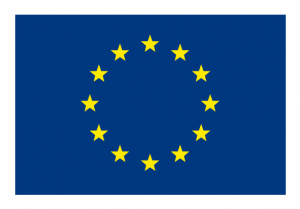 For the European dimension, we are planning a wide range of sessions relating to European funding opportunities, by a mix of online resources and face-to-face sesions introducing the EU funding landscape and key calls. Sessions will draw on the knowledge of BU staff and external facilitators. At these events, you will be introduced to the details of specific call types within the three pillars of Horizon 2020, including, where possible, the experience of fellow-academics, who have been directly involved in receiving EU funding. We will also be inviting external experts to expand the range of calls to which BU academics apply. Important to EU bids, we’ll run a session giving information and examples relating to building robust partnerships and working with stakeholders. In common with other pathways, there will be practical sessions to help you the systems invovled. For the EU, this will include use of the Participant Portal, to plan and support your bidding activity. Often overlooked, we will also be running events to raise awareness of EU funding outside the flagship Horizon 2020 scheme, such as COST, Interreg and Creative Europe. Early in the 16/17 academic year, we will host our, always popular, annual UKRO information day for BU academics and research support staff.
For the European dimension, we are planning a wide range of sessions relating to European funding opportunities, by a mix of online resources and face-to-face sesions introducing the EU funding landscape and key calls. Sessions will draw on the knowledge of BU staff and external facilitators. At these events, you will be introduced to the details of specific call types within the three pillars of Horizon 2020, including, where possible, the experience of fellow-academics, who have been directly involved in receiving EU funding. We will also be inviting external experts to expand the range of calls to which BU academics apply. Important to EU bids, we’ll run a session giving information and examples relating to building robust partnerships and working with stakeholders. In common with other pathways, there will be practical sessions to help you the systems invovled. For the EU, this will include use of the Participant Portal, to plan and support your bidding activity. Often overlooked, we will also be running events to raise awareness of EU funding outside the flagship Horizon 2020 scheme, such as COST, Interreg and Creative Europe. Early in the 16/17 academic year, we will host our, always popular, annual UKRO information day for BU academics and research support staff.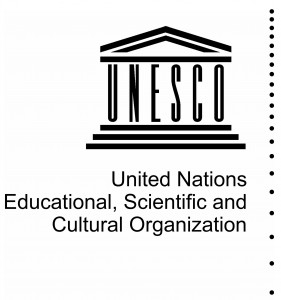

 In its capacity as UK National Contact Point for the European Research Council (ERC), the UK Research Office, in partnership with the hosting institutions, is holding two events for researchers who are interested in applying for the next ERC Starting Grants call. The events are scheduled as follows:
In its capacity as UK National Contact Point for the European Research Council (ERC), the UK Research Office, in partnership with the hosting institutions, is holding two events for researchers who are interested in applying for the next ERC Starting Grants call. The events are scheduled as follows: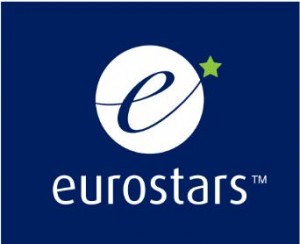 Eurostars supports international innovative projects led by research and development- performing small- and medium-sized enterprises (R&D-performing SMEs). With its bottom-up approach, Eurostars supports the development of rapidly marketable innovative products, processes and services that help improve the daily lives of people around the world. Eurostars has been carefully developed to meet the specific needs of SMEs. It is an ideal first step in international cooperation, enabling small businesses to combine and share expertise and benefit from working beyond national borders.
Eurostars supports international innovative projects led by research and development- performing small- and medium-sized enterprises (R&D-performing SMEs). With its bottom-up approach, Eurostars supports the development of rapidly marketable innovative products, processes and services that help improve the daily lives of people around the world. Eurostars has been carefully developed to meet the specific needs of SMEs. It is an ideal first step in international cooperation, enabling small businesses to combine and share expertise and benefit from working beyond national borders.
 Horizon 2020 considers gender as a cross-cutting issue and it shall be adequately integrated in research and innovation content at the level of Work Programmes and projects. Applicants to Horizon 2020 calls are encouraged to include the gender dimension in their proposals. The European Commission is continuously looking for experts with gender expertise in all areas of Horizon 2020 calls to evaluate submitted research proposals.
Horizon 2020 considers gender as a cross-cutting issue and it shall be adequately integrated in research and innovation content at the level of Work Programmes and projects. Applicants to Horizon 2020 calls are encouraged to include the gender dimension in their proposals. The European Commission is continuously looking for experts with gender expertise in all areas of Horizon 2020 calls to evaluate submitted research proposals. As we know Nigel Farage, the now internationally infamous politician who led the UKIP juggernaut for Brexit is keen to see an ‘Independence Day from the EU’ established in the British calendar once (or if) the button on Article 50 is pushed.
As we know Nigel Farage, the now internationally infamous politician who led the UKIP juggernaut for Brexit is keen to see an ‘Independence Day from the EU’ established in the British calendar once (or if) the button on Article 50 is pushed.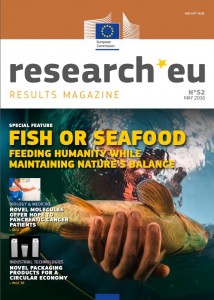
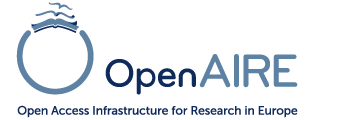

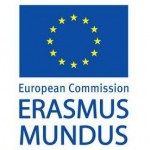






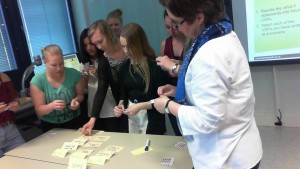
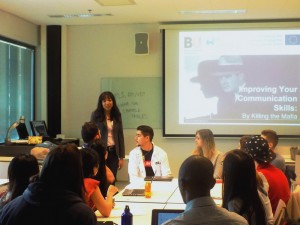


 Bournemouth University welcomed Mr Peter Huang, Deputy Director of the
Bournemouth University welcomed Mr Peter Huang, Deputy Director of the  There are still a few places remaining at the RKEO
There are still a few places remaining at the RKEO 










 April’s Café Scientifique – Should we help machines understand and respond to our emotions?
April’s Café Scientifique – Should we help machines understand and respond to our emotions? Postgraduate Research Experience Survey (PRES) 2024 – 2 WEEKS LEFT
Postgraduate Research Experience Survey (PRES) 2024 – 2 WEEKS LEFT Working with The Conversation: online training session – Wednesday 8th May
Working with The Conversation: online training session – Wednesday 8th May Apply for up to £1,000 to deliver an event and take part in a national festival of public engagement with research
Apply for up to £1,000 to deliver an event and take part in a national festival of public engagement with research MSCA Postdoctoral Fellowships 2024
MSCA Postdoctoral Fellowships 2024 Horizon Europe News – December 2023
Horizon Europe News – December 2023